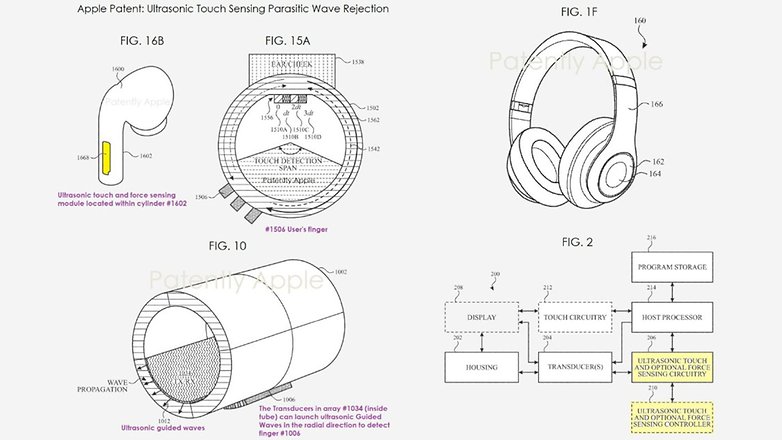The US Patent and Trademark Office revealed that Apple has filed a new patent relating to ultrasonic touch technology to be used on its headphones. However, it is unlikely that the new touch sensor will be ready for the upcoming AirPods Pro 2 and even on the AirPods Max successor.
TL;DR
- Apple filed a patent relating to ultrasonic touch sensor for its headphones.
- The technology might replace capacitive keys on the future AirPods and AirPods Max.
- Advantages of ultrasonic sensor include usability when the device is wet.
Getting rid of the capacitive keys on the next gen AirPods might be Apple’s next top priority. According to the latest filing spotted by Patently Apple, the company might be already working on a more advanced ultrasonic technology that will enable more usability for its devices in any type of condition.
Why ultrasonic touch sensor is better than capacitive
Although capacitive sensors are proven to be an effective solution compared to mechanical buttons, they are still far from perfect. Most capacitive controls are rendered ineffective and inaccurate when a user is wearing gloves during winter or if the headphones/fingers are wet. It seems Apple wants to solve that problem by relying on ultrasonic waves rather than with electrical fields used in capacitive sensors.

At present, ultrasonic sensors have disadvantages such as unintended inputs coming from “parasitic” waves. Fortunately, Apple already has a solution present by introducing guided waves in radial direction to detect fingers. The use of force sensing module could also help reduce accidental inputs which are seen on one of the illustrations.
Moreover, not only the AirPods may take advantage of the ultrasonic sensors. It is possible that the Curpertino giant may apply the aforementioned technology for its future wearables as an alternative to the current Assistive Touch feature of Apple smartwatches. Ultimately, it could still evolve into a different function after all.
Which input controls do you prefer: mechanical, capacitive, or ultrasonic? Hit us up with your answers in the comment section.




